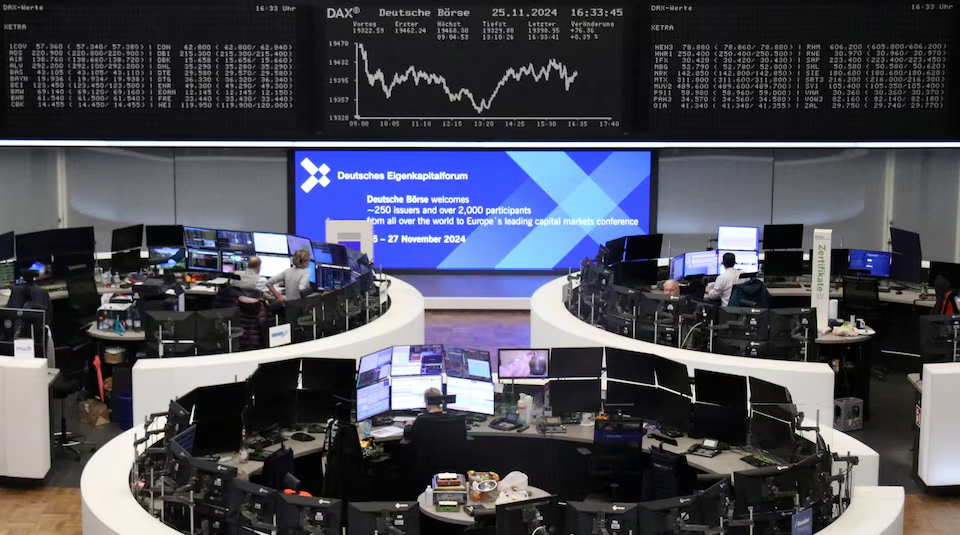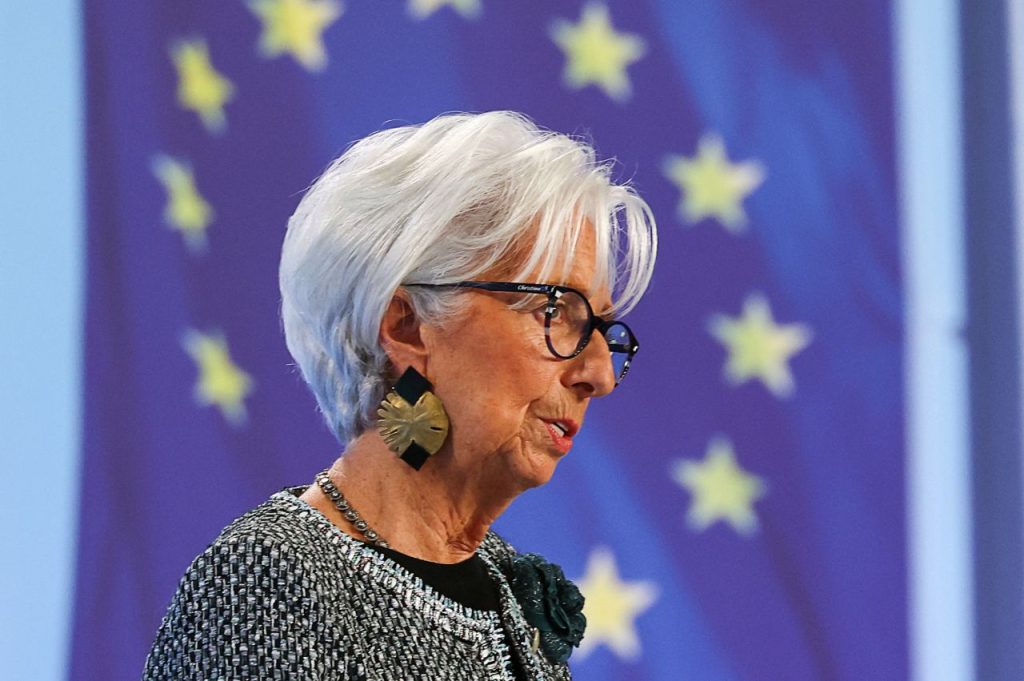Dow drops 500 points, Big Tech stocks drag Nasdaq down 2%: Live updates

In a volatile day for the stock market, the Dow Jones Industrial Average plummeted 500 points, driven by significant losses in Big Tech stocks, which also dragged the Nasdaq down by 2%. Investors are facing heightened uncertainty as major concerns, including inflation, rising interest rates, and economic growth prospects, continue to influence market sentiment.
Stock Market Decline: A Snapshot
The stock market’s sharp decline on this particular day is largely attributed to a slump in technology stocks, particularly those of major players in the industry. The Dow, which tracks 30 large-cap stocks, experienced a 500-point drop, while the broader S&P 500 saw a more modest decline. However, it was the Nasdaq, which is heavily weighted toward technology companies, that took the hardest hit. With a 2% drop, the Nasdaq fell significantly as a result of Big Tech’s underperformance.
Among the most notable stocks contributing to the downturn were those of companies such as Apple, Amazon, Microsoft, and Alphabet (Google’s parent company). These firms, often referred to as the “Big Five” in the tech sector, collectively hold immense market power, and their stock prices have a substantial impact on the broader market indices. When these stocks suffer major declines, as they did on this day, it has a cascading effect on the Nasdaq and the overall market.
Big Tech Struggles Amid Economic Concerns
The heavy losses in Big Tech stocks are primarily linked to a combination of factors, including rising concerns about inflation and the impact of higher interest rates. With inflation still a pressing issue in the global economy, investors are increasingly worried about the ability of companies to sustain growth in the face of rising prices and tightening monetary policy. The Federal Reserve has raised interest rates multiple times in recent months to combat inflation, which has put pressure on growth stocks, especially those in the technology sector.
Tech companies, known for their high valuations and future growth prospects, are particularly vulnerable to interest rate hikes. When interest rates rise, the cost of borrowing increases, which can make it more expensive for companies to invest in innovation and expansion. Additionally, higher rates can lead to lower future earnings projections, which causes investors to reassess the value of these companies, leading to stock sell-offs.
For tech giants like Apple and Amazon, the challenges are even more pronounced due to their large global operations and exposure to various markets. Inflation and economic slowdowns in key regions can impact their sales, while the rising cost of production and supply chain disruptions may further hinder their growth.
Impact on Investor Sentiment and Market Volatility
The sharp downturn in the stock market has significantly affected investor sentiment. As uncertainty surrounding inflation, rising interest rates, and the global economic outlook grows, many investors are becoming increasingly cautious, shifting their portfolios away from high-risk stocks and opting for more stable assets like bonds or commodities. This has contributed to a tightening of liquidity in the markets, further intensifying the sell-off.
Market volatility has been a recurring theme in recent months, with investors grappling with the unpredictable nature of the global economy. While many analysts had hoped that inflation would ease and interest rates would stabilize, economic data continues to suggest otherwise, adding to the overall pessimism in the markets.
The fear of a potential economic slowdown or even a recession is weighing heavily on market participants, prompting many to sell off their positions in riskier stocks. The tech sector, being heavily reliant on growth and innovation, has become a focal point for this risk aversion. The prospect of a slowdown in consumer spending, tighter corporate budgets, and lower demand for technology products has made investors rethink their positions in these companies.
Wider Economic Concerns Contributing to the Market Downturn
Beyond inflation and interest rate concerns, there are several other factors contributing to the market’s downturn. One of these is the ongoing geopolitical uncertainty surrounding various regions of the world, including Europe, the Middle East, and Asia. Tensions in these areas, as well as potential disruptions to global trade, have heightened fears of a global recession, further dampening investor confidence.
Additionally, there are concerns about the resilience of the labor market. While employment data has remained strong in recent months, fears of an impending slowdown have caused some to question how sustainable the current labor market conditions are. If unemployment were to rise or if wages were to stagnate, it could further exacerbate economic challenges and weigh on corporate profits.
The tech sector, in particular, has felt the strain of these broader economic pressures. As businesses struggle with rising costs, tech companies are facing greater scrutiny over their ability to deliver sustained growth and profitability. This has resulted in a reevaluation of tech stocks, with investors selling off shares in favor of more defensive assets.
What’s Next for the Markets?
Looking ahead, the outlook for the stock market remains uncertain. Many analysts believe that market volatility will persist as long as inflation remains elevated and interest rates continue to rise. While some experts are optimistic about the long-term prospects for the economy, others are warning that the current economic environment may lead to a prolonged period of sluggish growth.
For investors, the key question is how to navigate this uncertainty. Many are turning to more defensive investment strategies, focusing on stocks with stable earnings and strong dividend yields, rather than speculative growth stocks. Others are diversifying into assets such as commodities, real estate, and bonds, which may offer more stability in the face of economic turbulence.
The Federal Reserve’s actions will continue to play a crucial role in shaping market dynamics. If inflation shows signs of easing, the Fed may shift its focus away from interest rate hikes, which could provide some relief to the markets. However, if inflation remains stubbornly high, the central bank may need to continue its tightening policies, which could prolong the current market downturn.
The sharp drop in the stock market, with the Dow losing 500 points and the Nasdaq falling by 2%, underscores the challenges that investors are facing as they navigate an increasingly uncertain economic environment. Rising inflation, interest rate hikes, and broader economic concerns have all contributed to a wave of selling in the markets, particularly in the tech sector. While some analysts remain optimistic about the long-term outlook, the immediate future remains unpredictable, with market volatility expected to persist. Investors will need to stay vigilant and adjust their strategies accordingly as the economic landscape continues to evolve.






